
Germany - SWEG, Südwestdeutsche Landesverkehrs-AG incl. Hohenzollerische Landesbahnen HzL
For a full scale picture, please click on the picture shown !
SWEG
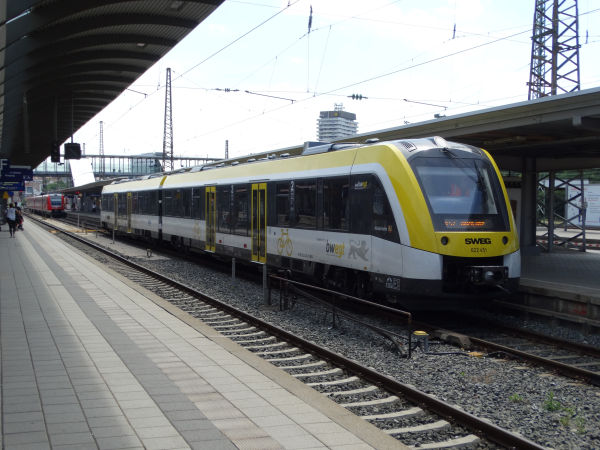
Two prominent players when it comes to passenger rail traffic in the state of Baden-Württemberg, SWEG, the Südwestdeutsche Landesverkehrs-AG
and HzL, the Hohenzollerische Landesbahnen are now since 2019 in one and the same organisation, called SWEG. SWEG also won new services in
a new round of public tendering, so the company is now stronger than ever. And they bought totally new trains. This is one of them, an Alstom
LINT 54 or Br622, which is all new and which just in 2019 has taken over a new route from DB. It has also a new colouring scheme. Tha state
of Baden-Württemberg wants now that all trains and even buses would carru this new yellow and white painting and also the new "bwegt" logo
standing for "Baden-Württemberg bewegt", or Baden-Württemberg makes you mobile.
Picture from Ulm Hauptbahnhof 3.7.2019 by Ilkka Siissalo.
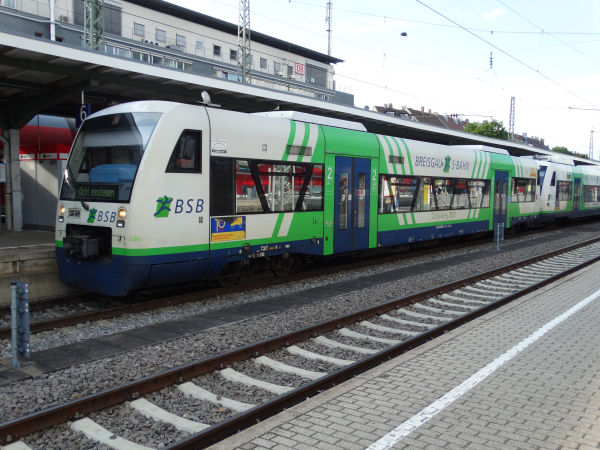
BSB or Breisgau S-Bahn is a local service of SWEG around Freiburg im Breisgau. Most of these S-Bahn services have been run using Stadler RS1
railbuses, like here.
Picture from Freiburg im Breisgau Hauptbahnhof 12.7.2019 by Ilkka Siissalo.
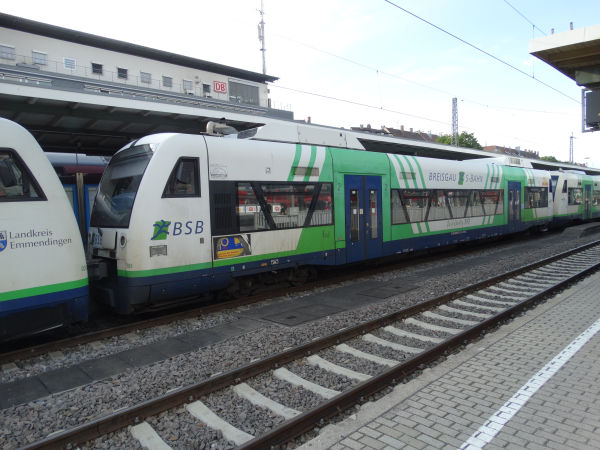
RS1 railbuses are just one coach long, which makes combinations of three RS1 units often necessary in the BSB services in Breisgau.
Picture from Freiburg im Breisgau Hauptbahnhof 12.7.2019 by Ilkka Siissalo.
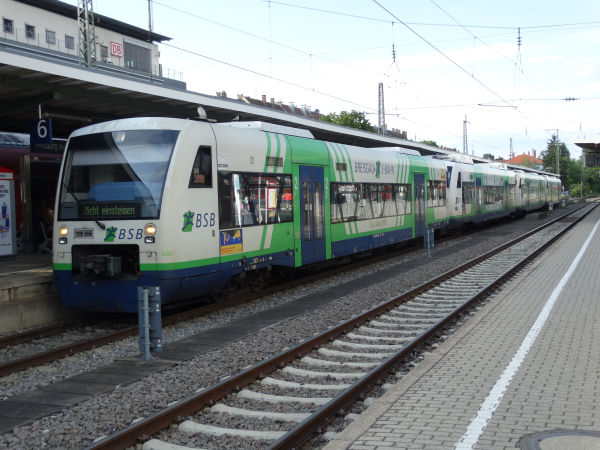
Another view of the same three RS1 units long BSB train.
Picture from Freiburg im Breisgau Hauptbahnhof 12.7.2019 by Ilkka Siissalo.
Hohenzollerische Landesbahnen HzL
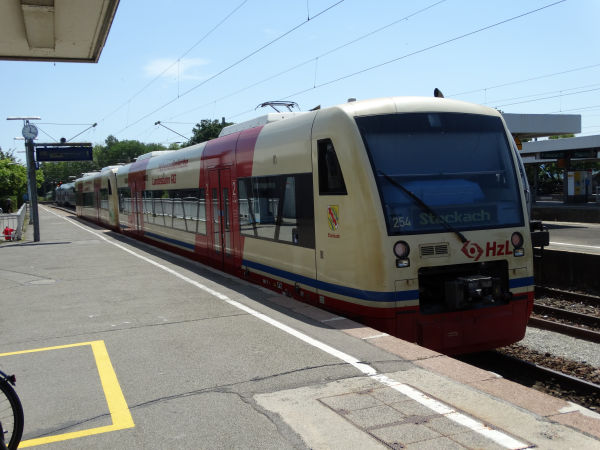
HzL operates quite a large number of passenger services as well as cargo services in the south of Germany, especially in the area close
to the Bodensee lake. Sone services even reach Schaffhausen in Switzerland. Here we see a typical HzL train consisting of two Stadler
RegioShuttle RS1 railbuses, on the service they call "Seehäsle", along the shores of lake Bodensee.
Picture from Radolfzell 4.7.2019 by Ilkka Siissalo.
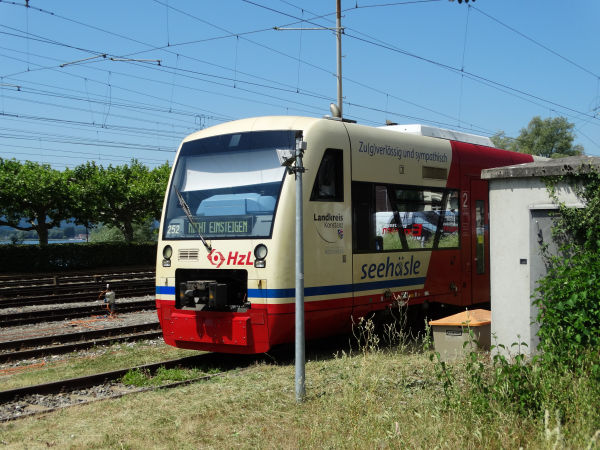
The front of another parked RS1 railbus of the "Seehäsle" service of HzL.
Picture from Radolfzell 4.7.2019 by Ilkka Siissalo.
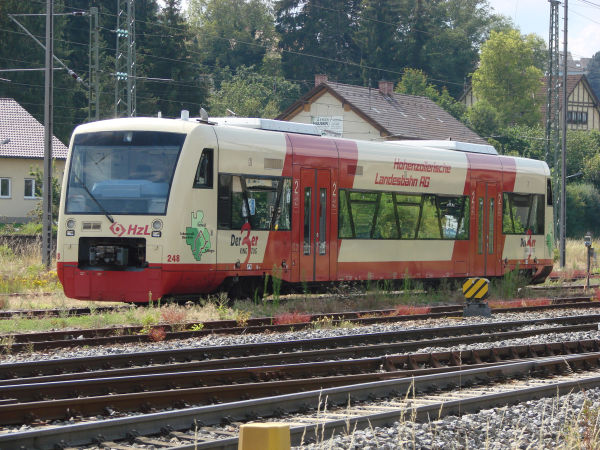
A typical HzL RS1 railbus has for years and years always been without the blue extra line as shown above. The blue line is just an extra
related to the "Seehäsle" service along the Bodensee lake.
Picture of a regular HzL RS1 railbus from Donaueschingen 18.7.2007 by Ilkka Siissalo.
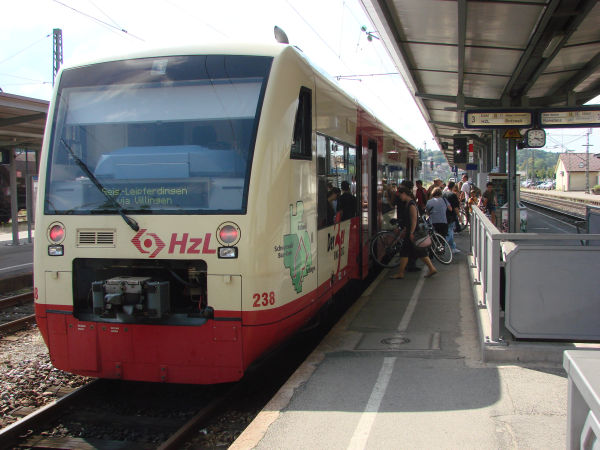
A second view of an HzL RS1 railbus boarding passengers.
Picture of an HzL RS1 railbus from Donaueschingen 18.7.2007 by Ilkka Siissalo.
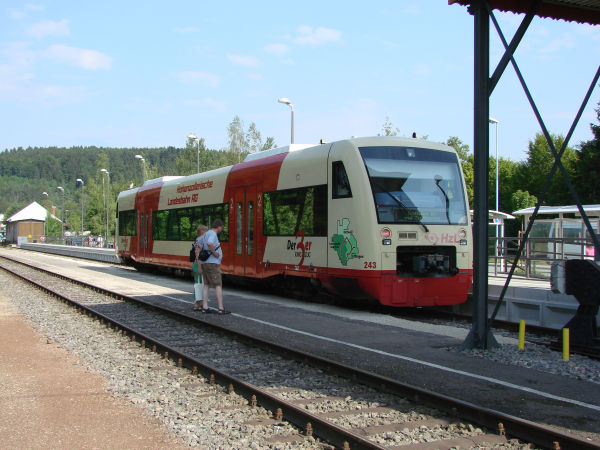
Another Hohenzollerische Landesbahnen HzL RS1 railbus.
Picture from Zollhaus Blumberg 18.7.2007 by Ilkka Siissalo.
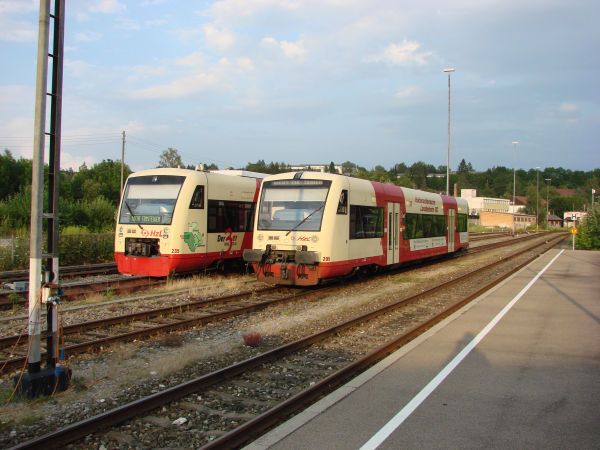
How can you tell apart an old RS1 railbus from a new one? Here is an example. The old one, from the times when the producing company was
still ADtranz, the RegioShuttle RS1 railbuses had their signs showing where they are going to on top of the wind screen, later under it.
The lamps were also different. And in some cases, like here, the old ones did not even yet have Scharfenberg central couplers, but
instead buffers and old-fashioned screw couplers. But the most easily spotted difference is the sign showing where the train is going to.
Is it up, like in the Adtranz made old ones, or is it under the windscreen like in the Stadler made newer ones?
Picture of two HzL RS1s is from Sigmaringen 18.7.2007 by Ilkka Siissalo.
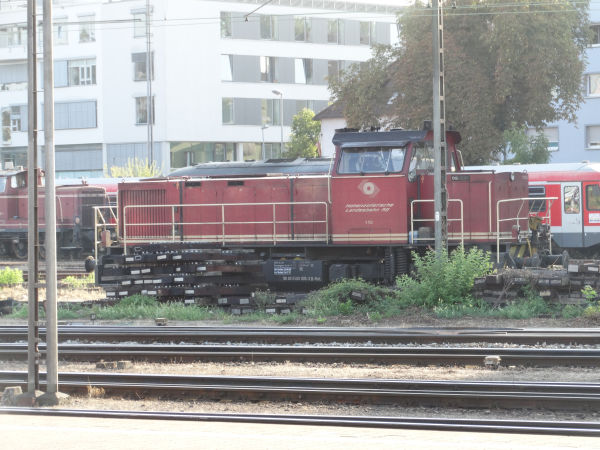
Although the Hohenzollerische Landesbahnen HzL has already since long ago been focused mainly on passenger traffic, they do have some
of their own rail lines and some modest amount of cargo traffic on them, This is HzL's locomotive V152, a type D100 BB locomotive made
by Gmeinder in 1992. HzL has three of these D100 BB machines.
Picture from Ulm Hauptbahnhof 13.9.2010 by Ilkka Siissalo.

